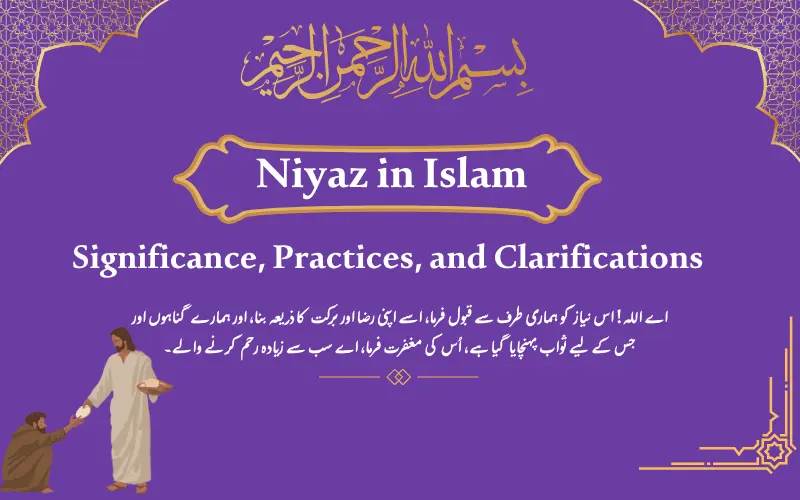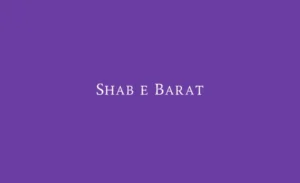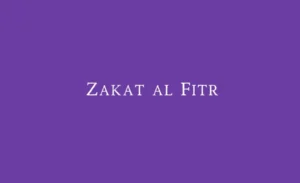Niyaz in Islam is a devotional act often associated with offering food or charity in the name of Allah, seeking His blessings, or honoring the memory of pious individuals, especially the Prophet Muhammad ﷺ, his family (Ahl al-Bayt), and righteous saints (Awliya Allah). While the term “Niyaz” itself is not explicitly mentioned in the Qur’an or Hadith, the concept aligns with core Islamic values such as charity (ṣadaqah), feeding the needy, and remembering the righteous. Practices like Niyaz Fatiha, where a short Qur’anic recitation (often Surah al-Fatiha and other verses) is read before distributing food, are common in many Muslim communities, particularly in South Asia.
It is a practice deeply rooted in love for the Prophet Muhammad (peace be upon him), the Ahl al-Bayt (the family of the Prophet), and righteous saints (awliya). However, the practice has prompted debate regarding its permissibility, with various Islamic scholars offering differing views. This article explores the origins, religious context, spiritual significance, and scholarly clarifications surrounding Niyaz, addressing common questions and ensuring a balanced understanding grounded in Islamic tradition. But what exactly is “Niyaz” and how is it perceived in the light of the Quran and Hadith?
This blog aims to provide a comprehensive guide to understanding Niyaz, especially Niyaz Fatiha, its significance, and its authenticity in Islam.
What is Niyaz in Islam?
Niyaz (Arabic: نياز) literally means “supplication” or “offering.” In Islamic culture, it refers to food or charity distributed in the name of Allah and dedicated to the pious souls of prophets, saints, or deceased loved ones. It is usually accompanied by reciting Surah al-Fatiha (the opening chapter of the Quran) and other prayers, hence the term “Niyaz Fatiha.”
Quranic Perspective on Niyaz
Although the specific word “Niyaz” is not mentioned in the Quran, the concept of giving in the name of Allah, making supplications, and remembering the righteous is well supported:
1. Giving Charity:
انفقوا ممّا رزقناهم سرًا وعلانيةً
“…and spend out of what We have provided them, secretly and openly…” — Surah Al-Baqarah (2:274)
The verse “انفقوا ممّا رزقناهم سرًا وعلانيةً” — “…and spend out of what We have provided them, secretly and openly…” (Surah Al-Baqarah, 2:274) — highlights the virtue of charity and generosity in Islam. This ayah encourages believers to give from the sustenance Allah has granted them, both privately (سرًا) to preserve humility and sincerity, and publicly (علانيةً) to encourage others and establish a culture of giving. The essence of this verse directly supports the spiritual foundation of practices like Niyaz, where food or resources are shared in the name of Allah, often with the intention of benefiting others and earning divine reward. It reinforces the Islamic principle that wealth is a trust (amanah) from Allah, and one’s piety is demonstrated through how they use it for the benefit of others, regardless of whether it’s done quietly or as a communal act of devotion.
2. Supplicating for the Deceased:
وقُل رَبِّ اغْفِرْ لِي وَلِوَالِدَّيْ وَلِلْمُؤْمِنِينَ يَوْمَ يَقُومُ الْحِسَابُ
“My Lord, forgive me, my parents, and the believers on the Day of Reckoning.” — Surah Ibrahim (14:41)
The verse “وَقُلْ رَبِّ اغْفِرْ لِي وَلِوَالِدَيَّ وَلِلْمُؤْمِنِينَ يَوْمَ يَقُومُ الْحِسَابُ” — “My Lord, forgive me, my parents, and the believers on the Day of Reckoning” (Surah Ibrahim, 14:41) — is a powerful du‘a (supplication) taught by Prophet Ibrahim (Abraham, peace be upon him). It reflects the comprehensive mercy and selflessness embedded in Islamic teachings, where a believer not only seeks forgiveness for themselves but also for their parents and the entire believing community. This verse is particularly relevant to the practice of Niyaz Fatiha, where Muslims recite Qur’anic verses and make supplication for the deceased, parents, and the Ummah. It affirms that praying for others, especially those who have passed away, is a noble and encouraged act in Islam. Through such prayers and charitable acts like Niyaz, believers hope to connect with the legacy of the pious, earn Allah’s mercy, and spiritually benefit both themselves and others on the Day of Judgment.
Hadith References on Supplication and Charity
The Prophet Muhammad ﷺ said, “Charity does not decrease wealth…” (Muslim 2588), highlighting the spiritual and material blessings of giving. He also taught, “When a person dies, their deeds end except three: ongoing charity, beneficial knowledge, or a righteous child who prays for them” (Sahih Muslim 1631), emphasizing the lasting reward of supplication and charitable acts—foundational elements of practices like Niyaz.
1. Dua for the Dead
The Prophet Muhammad (PBUH) said:
“When a man dies, his deeds come to an end except for three: Sadaqah Jariyah (ongoing charity), knowledge that is benefited from, or a righteous child who prays for him.” — Sahih Muslim
The hadith from Sahih Muslim states, “When a man dies, his deeds come to an end except for three: Sadaqah Jariyah (ongoing charity), beneficial knowledge, or a righteous child who prays for him.” This underscores the enduring value of supplication and charity, which are central to practices like Niyaz Fatiha, offering continuous spiritual rewards for both the deceased and those who honor them.
2. Feeding Others
The Prophet (PBUH) said:
“O people! Spread peace, feed others, maintain kinship, and pray at night while others sleep; you will enter Paradise peacefully.” — Jami’ at-Tirmidhi 2485
The hadith, “O people! Spread peace, feed others, maintain kinship, and pray at night while others sleep; you will enter Paradise peacefully.” (Jami’ at-Tirmidhi 2485), beautifully encapsulates the essence of Islamic social and spiritual ethics. Feeding others is specifically mentioned as a gateway to attaining Allah’s pleasure and entering Jannah (Paradise) with peace. This directly aligns with the practice of Niyaz, where food is distributed as an act of devotion, love, and care for the community. Combined with spreading peace and maintaining family ties, Niyaz becomes more than just a tradition—it becomes a means of fulfilling the Prophet’s ﷺ guidance on living a life of righteousness and compassion.
What is Niyaz Fatiha?
“Niyaz Fatiha” refers to the act of reciting Surah al-Fatiha and other supplications before distributing food or charity in the name of a deceased person, prophet, or saint. The purpose is not to worship the deceased but to pray for their forgiveness and send rewards (thawab) to their souls.
Common Practices Include:
- Recitation of Surah al-Fatiha, Surah Ikhlas, and other short surahs.
- Durood Shareef (salutations upon the Prophet).
- Dua for the deceased and all Muslims.
- Distribution of food among families, neighbors, or the poor.
Is Niyaz Bid’ah (Innovation)?
Some scholars label Niyaz as Bid’ah (innovation), while others justify it under the umbrella of permissible acts of remembrance and charity.
Scholars in Favor:
Imam al-Ghazali and many Sufi scholars considered acts like Niyaz as ways to increase communal love and remembrance of Allah.
Scholars Against:
Some Salafi scholars argue that if Niyaz involves asking for help from the dead or believing in their divine power, it becomes shirk.
However, intention (niyyah) is the key. If the purpose is to remember Allah, send rewards to the deceased, and feed the poor, it remains within the bounds of permissible Islamic actions.
Misconceptions Around Niyaz
Not a Worship of Saints: Niyaz is not about worshipping saints or the dead. It is about remembering Allah and praying for the deceased.
Not Exclusive to Any Sect: Though popular among Sufi and Barelvi Muslims, the foundational acts (charity, prayer) are accepted across schools of thought.
Not a Replacement for Obligatory Acts: Niyaz is a nafl (optional) act and does not replace fard (obligatory) duties.
Conclusion: Is Niyaz in Islam Allowed?
Yes, Niyaz in Islam is allowed if it aligns with the principles of charity, remembrance of Allah, and praying for the deceased. There is no harm in feeding others, reciting Quranic verses, and offering supplications as long as the belief system remains rooted in Tawheed (Oneness of God).
Also Read: How to distribute Niyaz
If you found this guide informative, share it with others who seek clarity on Islamic practices. For deeper learning, consult authentic scholars and always verify your practices with the Quran and Sunnah.
Frequently Asked Questions (FAQs):
Can Niyaz be done on any day?
Yes, it can be performed any time, though some prefer Thursdays or Islamic months like Rajab and Muharram.
Is it permissible to dedicate food to the Prophet Muhammad (PBUH) or saints?
Dedicating food is a symbolic gesture; the act should always be done in Allah’s name.
Can women participate in Niyaz gatherings?
Yes, women can attend and perform Niyaz within the guidelines of Islamic modesty.






